Current Faculty
-
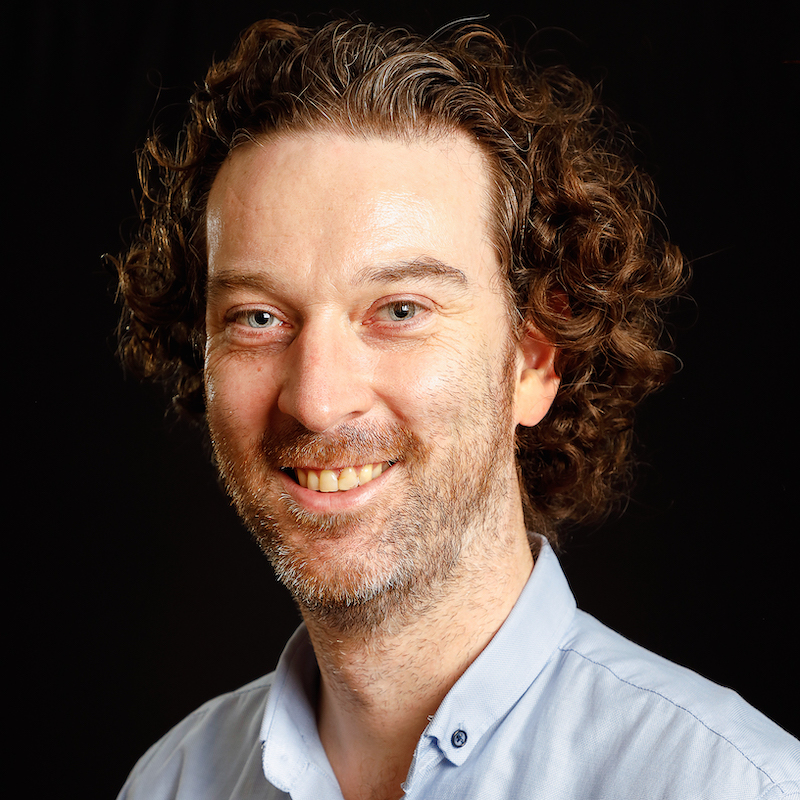 Simon Gilhooley, DirectorAssociate Professor of Politics; Director, Politics
Simon Gilhooley, DirectorAssociate Professor of Politics; Director, Politics
Office: Aspinwall 207
845-758-7556 | [email protected]
Simon Gilhooley, Director
Associate Professor of Politics; Director, Politics
Office: Aspinwall 207
845-758-7556 | [email protected]
Simon Gilhooley has been at Bard since 2013. He holds a Ph.D. in Government from Cornell University, and specializes in American Politics and Political Thought. His research builds upon insights from American politics and political theory, in order to address issues of constitutionality and authority within the American polity. His book The Antebellum Origins of the Modern U.S. Constitution: Slavery and the Spirit of the American Founding explores the development of the idea of the Constitution as representative of a historical spirit and the emergence of this idea within the historical context of Antebellum slavery. His research has been supported by the Andrew W. Mellon Foundation, the Gilder Lehrman Institute, the Library Company of Philadelphia, and the McNeil Center for Early American Studies, among others. He teaches courses on contemporary American politics, American political history, American political thought, and constitutional practice. Before joining Bard College, he taught at Ithaca College, NY. His website can be visited at www.simongilhooley.com
Recent Publications:- Founding Authority: Authority, John Marshall, and the Supreme Court in the American Founding, British Journal of American Legal Studies 11:2 2022
- “An affair of history, law, and institutions”: William Graham Sumner’s Historical Method and the Responsibility of the Individual,” American Political Thought 10:4 2021
-
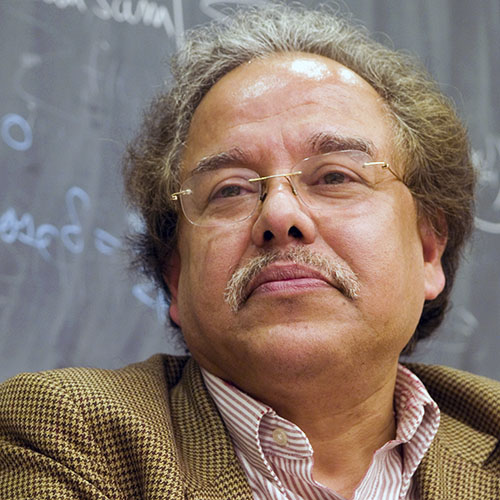 Sanjib BaruahProfessor Emeritus of Political Studies
Sanjib BaruahProfessor Emeritus of Political Studies
[email protected]
Sanjib Baruah
Professor Emeritus of Political Studies
[email protected]
Teaching and Research Interests: Political Economy, Nations and Nationalism, Asian Borderlands and South Asian Politics.
Sanjib Baruah has been at Bard since 1983. His doctoral work was at the University of Chicago. Prior to that he was educated at the University of Delhi in India; and Cotton College, Guwahati, India. His publications include India against Itself: Assam and the Politics of Nationality (University of Pennsylvania Press, 1999); Durable Disorder: Understanding the Politics of Northeast India (Oxford University Press, 2005); Postfrontier Blues: Towards a New Policy Framework for Northeast India (East-West Center, 2007) and the edited volumes Beyond Counterinsurgency: Breaking the Impasse in Northeast India (Oxford University Press, 2009) and Ethnonationalism in India: A Reader (Oxford University Press, 2010). His opinion pieces appear in the Indian Express and other newspapers.
He serves on the editorial board of the journal Studies in Indian Politics (Sage Publications) and the book series ‘South Asia in Motion’ of the Stanford University Press. He holds a concurrent position as Global Fellow at the Peace Research Institute in Oslo, Norway. A number of his books are available in the Oxford India Paperbacks series. For some of his publications visit: https://bard.academia.edu/SanjibBaruah -
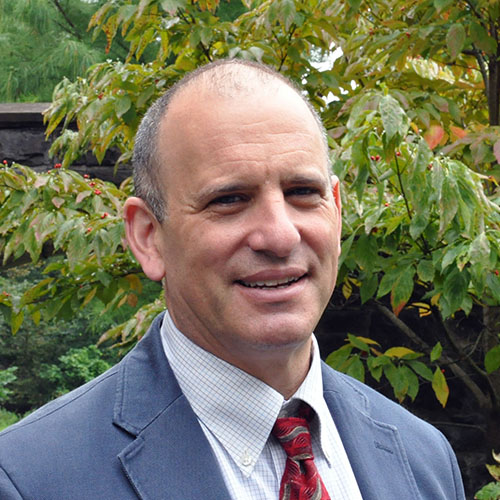 Jonathan BeckerVice President and Dean for International Affairs and Civic Engagement; Associate Professor of Politics
Jonathan BeckerVice President and Dean for International Affairs and Civic Engagement; Associate Professor of Politics
Office: Annandale 110
845-758-7378 | [email protected]
Jonathan Becker
Vice President and Dean for International Affairs and Civic Engagement; Associate Professor of Politics
Office: Annandale 110
845-758-7378 | [email protected]
Teaching and Research Interests: Soviet, Russian, and East European politics and history;US/Russian relations; comparative politics; media and politics; comparative media systems.
B.A., McGill University; D. Phil., St. Antony’s College, Oxford University. Specialization in Soviet, Russian, and Eastern European politics; media and politics. Taught at Central European University, University of Kiev Mohyla Academy, Wesleyan University, Yale University. Author of Soviet and Russian Press Coverage of the United States: Press, Politics and Identity in Transition (1999; new edition, 2002). Articles in European Journal of Communication, Journalism and Mass Communications Quarterly, Slovo, among others. Director, Global and International Studies Program; Academic Director, Bard Globalization and International Affairs Program. At Bard since 2001. -
 Roger BerkowitzProfessor of Politics and Human Rights; Academic Director, Hannah Arendt Center for Politics and Humanities
Roger BerkowitzProfessor of Politics and Human Rights; Academic Director, Hannah Arendt Center for Politics and Humanities
(SABB Spring 2025)
Office: Seymour 102
845-758-7413 | [email protected]
Roger Berkowitz
Professor of Politics and Human Rights; Academic Director, Hannah Arendt Center for Politics and Humanities
(SABB Spring 2025)
Office: Seymour 102
845-758-7413 | [email protected]
Teaching and Research Interests: Political theory, law and human rights with an emphasis on the ethical activity of justice.
Roger Berkowitz is Founder and Academic Director of the Hannah Arendt Center for Politics and Humanities and Professor of Politics, Philosophy, and Human Rights at Bard College. Professor Berkowitz authored The Gift of Science: Leibniz and the Modern Legal Tradition (Harvard, 2005; Fordham, 2010; Chinese Law Press, 2011). Berkowitz is editor of The Perils of Invention: Lying, Technology, and the Human Condition (2022) and co-editor of Thinking in Dark Times: Hannah Arendt on Ethics and Politics (2009), The Intellectual Origins of the Global Financial Crisis (2012) and Artifacts of Thinking: Reading Hannah Arendt's Denktagebuch (2017). His writing has appeared in The New York Times, The American Interest, Bookforum, The Forward, The Paris Review Online, Democracy: A Journal of Ideas, and many other publications. He is a co-editor of Just Ideas, a book series published by Fordham University Press. He is the winner of the 2019 Hannah Arendt Prize for Political Thought given by the Heinrich Böll Foundation in Bremen, Germany.
Selected Recent Publications:
"The Romance of the Self: Marilynne Robinson’s Existential Humanism," (with Anna Hadfield), The Political Companion to Marilynne Robinson (forthcoming)
"Instituting Freedom: Steven Buckler and Hannah Arendt on an Engaged Political Theory," European Journal of Political Theory (forthcoming, 2014)
"Drones Are Everywhere," forthcoming, Ethics and International Affairs (forthcoming, 2014)
"Justice," The Encyclopedia of Political Thought, ed. Michael T. Gibbons (Wiley, 2014)
"Does the President Matter? Thoughts on Miracles in Politics," in HA. The Journal of the Hannah Arendt Center for Politics and Humanities (v. 2, 2014).
"Dostoevsky," The Encyclopedia of Political Thought, ed. Michael T. Gibbons (Wiley, 2014).
"Melville's War Poetry and the Human Form," in A Political Companion to Herman Melville, ed. by Jason Frank (Kentucky Univ. Press, 2014).
“Misreading Eichmann in Jerusalem,” The New York Times, July 7, 2013.
"Should We Justify War?" in Just War in Religion and Politics, ed. by Jacob Neusner and R.E. Tully (2013).
"Human Being in an Inhuman Age," in HA. The Journal of the Hannah Arendt Center for Politics and Humanities (v. 1, 2012).
"Hannah Arendts erste Briefe an Karl Jaspers und Martin Heidegger: Freundschaft, Versöhnung und Wiederaufbau einer gemeinsamen Welt," in Nach dem Krieg! - Nach dem Exil? Erste Briefe/First Letters 1945-1950, II, ed. Detlef Garz and David Kettler (2012).
"’The Angry Jew has Gotten His Revenge’: Hannah Arendt on Revenge and Reconciliation," in Philosophical Topics (v. 39 no. 2, 2011).
"Hannah Arendt and Human Rights." Routledge International Handbook of Human Rights. Ed. by Thomas Cushman. (Routlege, 2011).
"The Power of Non-Reconciliation – Arendt’s Judgment of Adolf Eichmann," Hannaharendt.net (2011)
“Bearing Logs on Our Shoulders: Reconciliation, Judgment and the Building of a Common World,” Theory & Event v. 14.1 (March, 2011).
"From Justice to Justification: An Alternative Genealogy of Positive Law," University of California, Irvine, Law Review v. 1.3 (2011).
"Assassinating Justly: Reflections on Justice and Revenge in the Osama Bin Laden Killing." Journal of Law, Culture, and the Humanities (2011). -
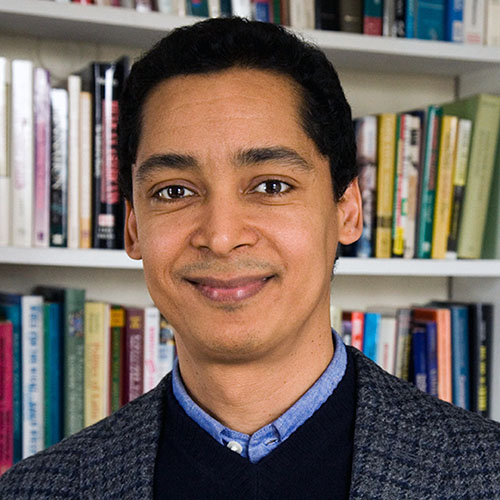 Omar G. Encarnación
Omar G. Encarnación
Omar G. Encarnación
Program Affiliations: Latin American and Iberian Studies, Global and International Studies, and Human Rights.
Teaching and Research Interests: Comparative politics with a focus on South America and Southern Europe. Special research interests in democratization, memory and politics, and LGBTQ rights.Professor Encarnación is the author of several books, including Framing Equality: The Politics of Gay Marriage Wars (Oxford University Press, 2025), Out in the Periphery: Latin America’s Gay Rights Revolution (Oxford University Press, 2016), and Democracy without Justice in Spain: The Politics of Forgetting (University of Pennsylvania Press, 2014), and more than a dozen peer-reviewed articles published in Comparative Politics, Political Science Quarterly, Comparative Political Studies, International Studies Quarterly, Journal of Democracy, Human Rights Quarterly, Perspectives on Politics, West European Politics, and Latin American Research Review. He opinion pieces have appeared in The New York Times, Current History, Foreign Affairs, Time, The Nation, Foreign Policy, Times Literary Supplement, and The New York Review of Books.
Professor Encarnación received his Ph.D. in politics from Princeton University. While at Princeton, he was the recipient of the Presidential Fellowship, the Council for European Studies Pre-dissertation Fellowship, and a Fulbright Dissertation Fellowship to Spain. Since completing the Ph.D., he has been the recipient of a Ford Foundation post-doctoral fellowship and research grants from the National Research Council and the Spanish Ministry of Culture. He has been a visiting fellow at the department of political science of Yale University, the Center for Advanced Studies in the Social Sciences of the Juan March Institute in Madrid, Georgetown University’s Center for Latin American Studies, and the Carnegie Endowment for International Peace in Washington, D.C. In 2020, he concluded a three-year appointment in the APSA Council, the governing body of the American Political Science Association. He currently chairs APSA’s Ethics Committee and sits on the editorial board of Perspectives on Politics.
Books
Framing Equality: The Politics of Gay Marriage Wars (Oxford University Press, 2025).
The Case for Gay Reparations (Oxford University Press, 2021).
Out in the Periphery: Latin America's Gay Rights Revolution (Oxford University Press, 2016).
Democracy without Justice in Spain (University of Pennsylvania Press, 2014).
Spanish Politics: From Dictatorship to Democracy (Polity Press, 2008).
Other Writings
“A Tale of Two Caudillos,” Foreign Affairs, January 16, 2025.
“America Got Gay Marriage But it Came at a Cost,” The New York Times, June 24, 2024.
“It is Possible to Forgive and Forget?” History Today, November 11, 2024.
“Why Separatism is no Match for Democracy,” Journal of Democracy 35 (1) January, 2024.
“Transitional Justice at 40: A Critical Appraisal,” Current History, January 2024.
“Spain is Doing Something Brave,” The New York Times, January 8, 2024.
“Democratic Backsliding: Comparative Reflections on the American Experience,” Political Science
Quarterly 138 (3), June 2023.
“The Surprising Strength of Brazil’s Democracy,” The Nation, January 23, 2023.
“In Defense of Spain’s Catalonia Amnesty,” Foreign Affairs, December 13, 2023.
“Spain is Going to be Fine,” The New York Times, July 20, 2023.
“The Spanish Exceptions,” The New York Review of Books, July 16, 2023.
“Latin America’s Abortion Rights Breakthrough,” Journal of Democracy, 22 (4), October 2022.
“Transitional Justice: Comparative and Historical Perspectives from Latin America,” Latin American
Research Review 57 (2022).
“The Revolt of Empty Spain,” The New York Review of Books, August 17, 2022.
“Gleaning Hope from Latin America’s Abortion Rights Revolution,” The Nation, May 18, 2022.
“Florida’s ‘Don’t Say Gay’ Bill Is Part of the State’s Long, Shameful History,” Time, May 12, 2022.
“Kramer v. America: How Activists Shaped the Response to the 1980s AIDS Crisis,” Times Literary
Supplement, June 11, 2021.
“The Gay Rights Backlash: Contrasting Views from the United States and Latin America,”
British Journal of Politics and International Relations 22 (4), 2020. -
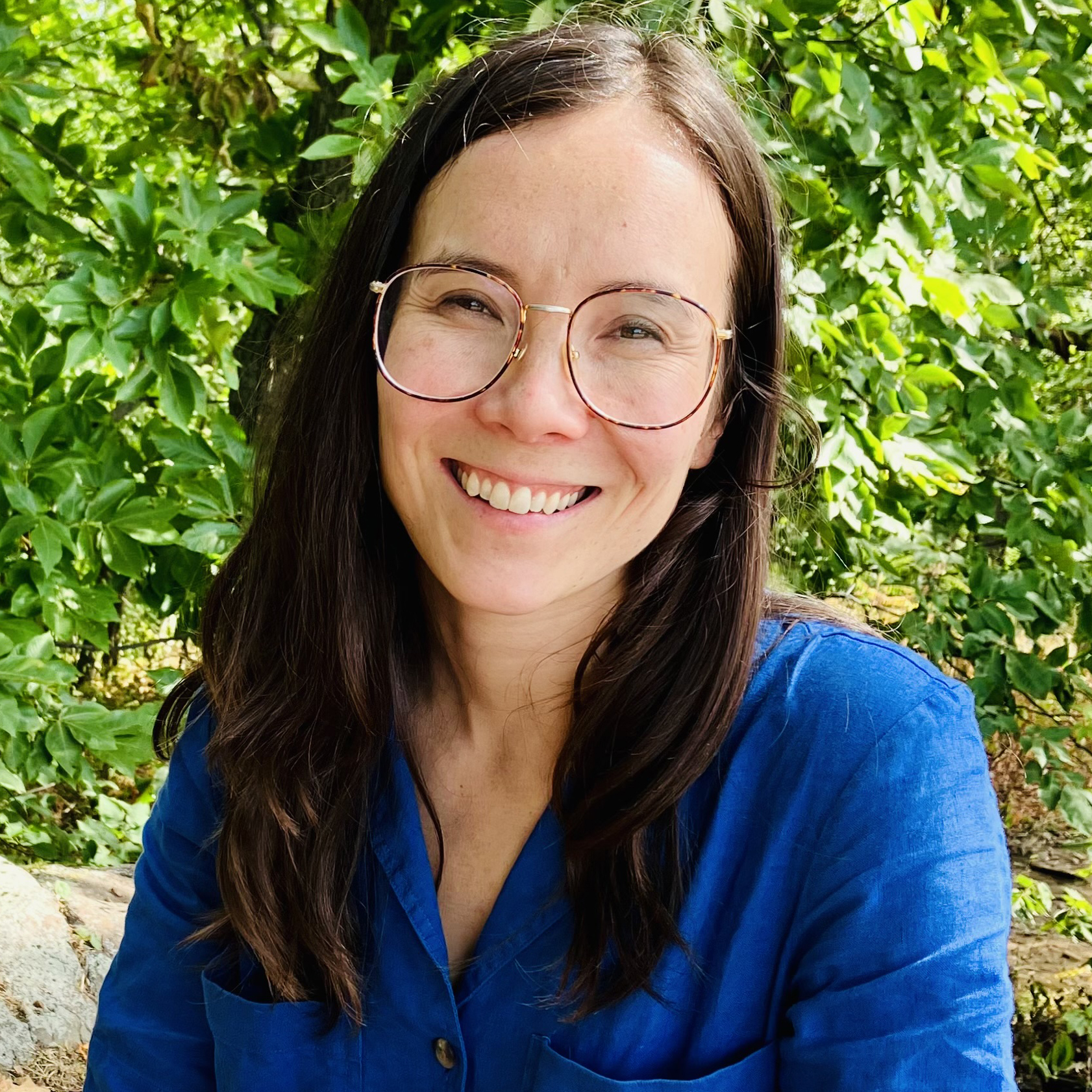 Mie Inouye
Mie Inouye
Mie Inouye
Professor Inouye is a political theorist whose scholarship investigates the ways that institutions shape people’s understandings of themselves and the social world, and the practices that allow oppressed people to develop and exercise agency. Her research and teaching areas include social movements, democratic theory, theories of political action, socialism, identity politics, American political thought, and religion and politics. Her current book project, Antinomies of Organizing, reconstructs theories of political organizing from the praxis of organizers in the 20th-century U.S. labor and civil rights movements, including William Z. Foster, Myles Horton, and Ella Baker. The book traces the relationship between democratization and personal transformation in the American organizing tradition and argues that this tradition holds important insights into the modes and ends of democratic participation. Professor Inouye’s writings have been published in academic and popular venues including the American Political Science Review, Boston Review, Jacobin magazine, The Forge, and the Political Theology Network.
BA, Tufts University; MA, University of Toronto; PhD candidate, Yale University. At Bard since 2021.
Selected Publications:
“Starting With People Where They Are: Ella Baker’s Theory of Political Organizing.” American Political Science Review, Vol. 116, Issue 2, May 2022, pp. 533-546.
“Labor’s Militant Minority.” Boston Review, June 15, 2022.
“Between Old and New Gods.” Political Theology Network, June 4, 2022. -
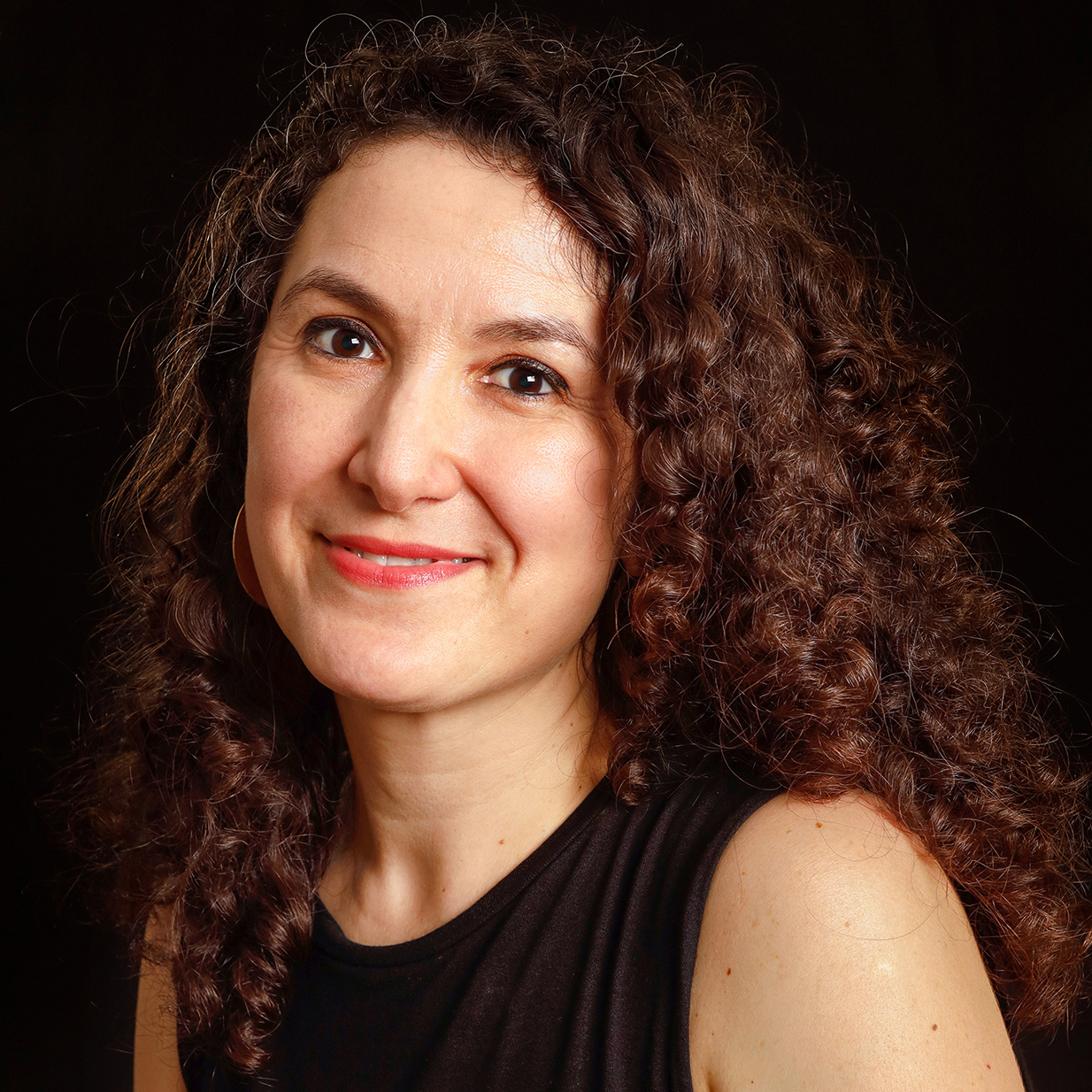 Pınar Kemerli
Pınar Kemerli
Pınar Kemerli
Prof. Kemerli teaches political theory, non-western political thought, and Middle East politics at Bard College. She completed her PhD in the Department of Government at Cornell University, and holds a BA from Boğaziçi University in Turkey, and MA degrees from Goldsmiths College of the University of London and Cornell University. Her interdisciplinary research addresses theories and practices of resistance, decolonization, violence/nonviolence, and religion and politics, and she offers courses on these topics. Prof. Kemerli is currently completing a book manuscript on war-resistance and conscientious objection in Turkey, and her articles and reviews have appeared in a range of journals including Political Theory, New Political Science, Radical Philosophy, Theory & Event, and International Journal of Middle East Studies.
Selected publications:
“Politics of Erasure: Islam, the New World and Political Theory,” (Forthcoming in Millennium)
“Violent Pasts, Difficult Confrontations: On the Armenian Genocide and Hirschkind’s “The Feeling of History,” Political Theology 2022, https://www.tandfonline.com/doi/abs/10.1080/1462317X.2022.2107354
“The Islamist Terrorist as the New Universal Enemy: Discourses on Terror at the United Nations,” ed. Claudia Verhoeven and Carola Dietze, The Oxford Handbook of the History of Terrorism (Oxford: Oxford University Press, 2022), 602-27
“Revolutionary Self-Defense as a Rival Ethics of Nonviolence: Rojava and Kurdish Liberation,” New Political Science 43:4 (2021) https://www.tandfonline.com/doi/full/10.1080/07393148.2022.2025719
“Thomas Hobbes and Political Secularism: A Critical Engagement,” Theory & Event 24:4 (2021):977-1002 https://muse.jhu.edu/article/819565/pdf
Review of Darryl Li, "The Universal Enemy: Jihad, Empire, and the Challenge of Solidarity,” Political Theory 48 (2020) https://journals.sagepub.com/doi/full/10.1177/0090591720973159
“Thinking Critically with Saba Mahmood: Secularism and Sovereignty, Radical Philosophy (Autumn 2019) https://www.radicalphilosophy.com/article/thinking-critically-with-saba-mahmood
“Necropolitics, Martyrdom, and Islamist Conscientious Objection,” ed. Banu Bargu, Turkey’s Necropolitical Laboratory: Democracy, Violence and Resistance (Edinburgh University Press) (2019)
“Religious Militarism and Islamist Conscientious Objection in Turkey,” International Journal of Middle East Studies 47:2 (2015): 281-301 https://www.cambridge.org/core/journals/international-journal-of-middle-east-studies/article/abs/religious-militarism-and-islamist-conscientious-objection-in-turkey/E8450179DDF55C898BB5524A65E981AD
-
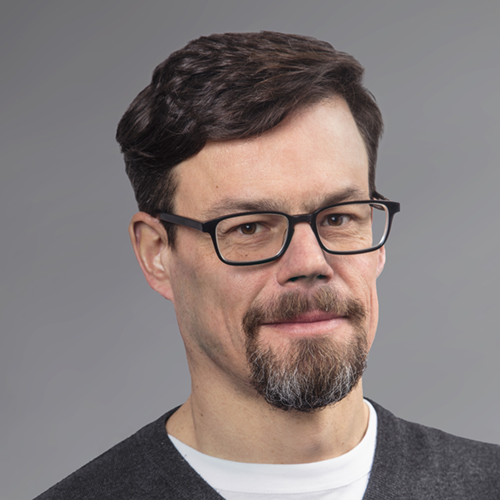 Christopher McIntoshAssociate Professor of Politics; Director, Global and International Studies Program
Christopher McIntoshAssociate Professor of Politics; Director, Global and International Studies Program
Office: Aspinwall 302C
845-758-6822 | [email protected]
Christopher McIntosh
Associate Professor of Politics; Director, Global and International Studies Program
Office: Aspinwall 302C
845-758-6822 | [email protected]
Program Affiliations: Global and International Studies
Christopher McIntosh began teaching at Bard in 2010. He received his Ph.D. in 2013 from The University of Chicago, specializing in international relations and has an M.A. in Security Studies from Georgetown. His principal research and teaching interests revolve around international relations, security studies, temporality, and post-structural theory. His primary research focuses on how the concept of war in contemporary international politics is constituted by sovereignty and the implications it has for the practice of political violence. This research builds on his dissertation, “What Makes a War, a War? Sovereignty, War, and the Subject of International Politics”. At Bard he teaches courses on global ethics, sovereignty and war, terrorism, security, and international relations. Prior to Bard, Professor McIntosh has worked at CSIS and the Office of Naval Intelligence.
Teaching and Research Interests: Security studies, war, sovereignty, temporality, terrorism, international relations, post-structural IR theory, global ethics, gender and security, the United States War on Terrorism, postcolonialism, and nationalism.
Publications:
- A Space for Time: Essays on Time, Temporality, and Global Politics (E-international Relations: forthcoming) with Andrew Hom, Alasdair MacKay, and Liam Stockdale.
- "Theory Across Time: International Relations' Privileging of Time-less Theory," International Theory 7, no. 3 (2015): 464-500.
- "Counterterrorism as War: The Dangers, Risks, and Oppurtunity Costs of War with Al Qaeda and its Affiliates," Studies in Conflict and Terrorism 38, no. 1 (2015): 104-118.
- "A Different Kind of War: Practices and War in Countering Terrorism," Air and Space Power Journal-AF 6, no. 4 (2015): 36-46.
- Ending the War on Al Qaeda” Orbis, December 2014 (58:1): 104-118.
- “The US Debate,” in Banning the Bang or the Bomb? Negotiating the Nuclear Test Ban Regime I. William Zartman, Mordechai Melamud, and Paul Meerts, eds. (Cambridge University Press: 2014): 131-151.
- “Taking Obama’s Offer Seriously: Ending the War on Al Qaeda” Yale Journal of International Affairs, June 1st, 2013.
-
 Michelle MurrayAssociate Professor of Politics; Chair, Social Studies Division
Michelle MurrayAssociate Professor of Politics; Chair, Social Studies Division
Office: Aspinwall 208
845-752-7693| [email protected]
Michelle Murray
Associate Professor of Politics; Chair, Social Studies Division
Office: Aspinwall 208
845-752-7693| [email protected]
Program Affiliations: Global and International Studies, Human Rights
Michelle Murray began teaching at Bard in 2010. She received her Ph.D. in 2008 from the University of Chicago, specializing in international relations. Her principal research and teaching interests lie at the intersection of international relations theory, security studies and diplomatic history. Her first book—The Struggle for Recognition in International Relations: Status, Revisionism and Rising Powers—offers a new answer to a perennial question in international relations: how can an established power manage the peaceful rise of new great powers? The book argues that power transitions are principally social phenomena whereby rising powers struggle to obtain recognition of their status as great powers. Through detailed case studies of the United States and Imperial Germany’s rise to world power status at the turn of the twentieth century, the book shows how the desire for recognition shaped the arming decisions of these rising powers. Professor Murray’s research has been supported by the Mellon Foundation, the Smith Richardson Foundation and the Bard Research Fund. During the 2014-2015 academic year was a Deans Fellow for US Foreign Policy at the Dickey Center for International Understanding at Dartmouth College. At Bard she teaches courses on international relations theory, security studies, great power politics, nuclear proliferation and humanitarian military intervention. Before joining the Bard faculty, she was a postdoctoral fellow in the International Studies Program at The University of Chicago.
Teaching and Research Interests: International relations theory, critical security studies, the politics of recognition among states; international history, especially pre-World War I Europe; and global governance and international organization.
Selected Publications
· The Struggle for Recognition in International Relations: Status, Revisionism and Rising Powers (Oxford: Oxford University Press, 2019).
· “Identity, Insecurity and Great Power Politics: The Tragedy of German Naval Ambition Before the First World War,” Security Studies 19, no. 4 (December 2010): 656-688.
-
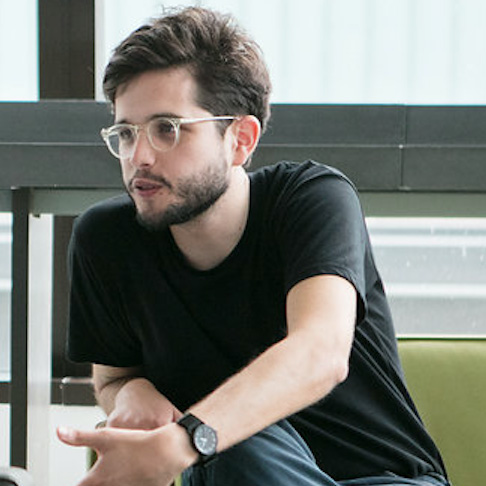 Lucas Pinheiro
Lucas Pinheiro
Lucas Pinheiro
Professor Pinheiro’s research connects political thought and critical theory to social and intellectual history by focusing on the development of global capitalism, empire, racial slavery, and abolition in the Atlantic world since the late seventeenth century. His current book project, Factories of Modernity: Political Thought in the Capitalist Epoch, recasts the factory system as a decisive stage for social, economic, and political ideas and practices in Britain and its Atlantic colonies between 1688 and 1807. From this historical study, he developed a long-range conceptual framework for understanding modern capitalism and confronting its enduring patterns of discipline, racialization, and inequality at contemporary workplaces like Google and Amazon. His articles, essays, and reviews have been published or are forthcoming in Political Theory, Modern Intellectual History, Perspectives on Politics, Contemporary Political Theory, and Disability and Political Theory (Cambridge University Press, 2016), among others.
Pinheiro holds a Ph.D. and M.A. in Political Science from the University of Chicago and an M.Phil. in Political Thought and Intellectual History from the University of Cambridge. He is the recipient of the 2020 Stephen E. Bronner Dissertation Award from the American Political Science Association and the 2021 Glenn and Claire Swogger Award for Exemplary Classroom Teaching from the University of Chicago. Before joining Bard, he held postdoctoral fellowships at Dartmouth College and the University of Chicago. At Bard, he is excited to teach two new seminars in the Politics Program: “Theories of Racial Capitalism” (Fall 2022) and “The Rise of Capitalism” (Spring 2023). You can find out more about his work at www.lucasgpinheiro.com or by following him on Twitter at @lucasgpin.
Teaching and Research Interests: the history of political thought; contemporary political theory; social and intellectual history; political economy; critical theory; histories and theories of global capitalism; empire and colonialism; slavery and abolition; race and capitalism; politics and aesthetics.
Selected Publications:
“A Factory Afield: Capitalism and Empire in John Locke’s Political Economy,” Modern Intellectual History 19, no. 1 (2022): 1-28
“Review of Locke Among the Radicals: Liberty and Property in the Nineteenth Century by Daniel Layman (Oxford, 2020),” Political Theory (Forthcoming):
“Review of Colonial Capitalism and the Dilemmas of Liberalism by Onur Ulas Ince (Oxford, 2018),” Contemporary Political Theory 20, no.3 (2021): 110-114
“The Ableist Contract: Intellectual Disability and the Limits of Justice in Kant’s Political Thought,” Disability and Political Theory, edited by Barbara Arneil and Nancy J. Hirschmann (Cambridge and New York: Cambridge University Press, 2016): 43-78









